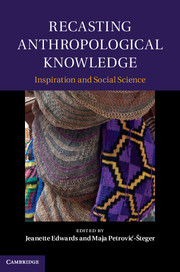Book contents
- Frontmatter
- Contents
- Contributors
- Acknowledgements
- 1 Introduction
- 2 Writing the parallax gap
- 3 Too big to fail
- 4 ???Hybrid custom??? and legal description in Papua New Guinea
- 5 Entomological extensions
- 6 Kinship and the core house
- 7 Invisible families
- 8 Knowledge in a critical mode
- 9 Spools, loops and traces
- 10 Inspiring Strathern
- Bibliography
- Index
3 - Too big to fail
Published online by Cambridge University Press: 07 September 2011
- Frontmatter
- Contents
- Contributors
- Acknowledgements
- 1 Introduction
- 2 Writing the parallax gap
- 3 Too big to fail
- 4 ???Hybrid custom??? and legal description in Papua New Guinea
- 5 Entomological extensions
- 6 Kinship and the core house
- 7 Invisible families
- 8 Knowledge in a critical mode
- 9 Spools, loops and traces
- 10 Inspiring Strathern
- Bibliography
- Index
Summary
[W]hat people exchange is a totality: one perspective for another; your view of my assets for my view of yours. Thus are persons and objects created.
(Strathern 1992b: 188)In 2008, in one of the now infamous pivotal events in the financial crisis, the insurance giant AIG (American International Group) came close to defaulting on its obligations. AIG was in the business of guaranteeing others’ debts. Other parties, who had taken on the risk of guaranteeing obligations, turned to AIG to promise to fulfil those obligations should they ever have to pay on them, in exchange for regular payments to AIG. But in 2008 those parties began to doubt AIG’s ability to fulfil its own obligations in the face of the mortgage crisis. And so they began to demand collateral in the present as security for future potential debts. As AIG proved unable to meet these immediate demands these counterparties’ demands for collateral grew greater still. In a matter of days, AIG came unravelled, its inadequate assets on display for all to see. The immediate crisis was diffused when the US Department of Treasury stepped in, declaring AIG ‘too big to fail’, and promising to meet all of AIG’s obligations dollar for dollar. But this precipitated a larger political crisis of sorts, as politicians asked where the limits of the government’s obligations to ‘bail out’ private parties might lie, and as citizens’ groups on the right and the left voiced dismay as tax dollars were funnelled to AIG’s counterparties while ordinary people suffered near record debts of their own.
My own work to date on capital markets and on legal knowledge in liberal states has focused on the legal knowledge practices entailed in financial transactions especially as I have observed them in Japan (Riles 2011, in press). In this respect, my interest has tracked the explicit focus of market participants: what absorbs their energies is the intricacies, financial and legal, of transactions, as transactions, and the quantity and quality of the property transacted. What is the value of the swap? What is the value of the collateral? Is it legally valid? What law will regulate the collateral and the transaction? What kinds of documents, what kinds of theories, what kinds of professionals, what kinds of laws are necessary to sustain these transactions? Yet in Strathern’s terms, this focus ‘yields a remainder’ – the question of the nature of the persons engaged in such transactions. For an anthropologist, what is particularly salient about events such as these is that state, corporation and property (assets, collateral, debts and obligations) are all being explicitly reimagined in a relational way, as potential transacting partners: the argument is anxiously made that without the state the market will fail, and vice versa. And in these moments of ‘crisis’, the potentialities and vulnerabilities of these transactors are suddenly, surprisingly – almost violently – revealed, their interdependence activated.
- Type
- Chapter
- Information
- Recasting Anthropological KnowledgeInspiration and Social Science, pp. 31 - 48Publisher: Cambridge University PressPrint publication year: 2011
- 14
- Cited by



